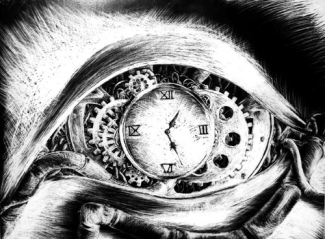
The GE commercial played in the background, but something about those first lines resonated. Where had I heard them before? Turns out the lines are part of an advertising campaign called “Brilliant Machines”. In a promotional piece called “Pushing the Boundaries of Minds + Machines” they say:
The world is on the threshold of a new era of innovation and change with the rise of the Industrial Internet. It is taking place through the convergence of the global industrial system with the power of advanced computing, analytics, low-cost sensing and new levels of connectivity permitted by the Internet. The deeper meshing of the digital world with the world of machines holds the potential to bring about profound transformation to global industry, and in turn to many aspects of daily life, including the way many of us do our jobs. These innovations promise to bring greater speed and efficiency to industries as diverse as aviation, rail transportation, power generation, oil and gas development, and health care delivery. It holds the promise of stronger economic growth, better and more jobs and rising living standards, whether in the US or in China, in a megacity in Africa or in a rural area in Kazakhstan.
Who’s speaking? Who’s saying those things? Who is the “I” who has “seen things”? It’s a non-human, an android–a non-human machine that is meant to simulate a human machine.
I’ve seen things. I have a past, a memory. This thing I’m seeing now I’ve put into the context of all the things I’ve seen during my life. I’ve seen things that aren’t me. These things are separate from me; they coexist with me inside some larger ecological space. That thing we used to call the world. I’ve seen things. I’ve seen incredible things. Things so rare. I’ve seen things you people wouldn’t believe.
I wonder if GE, in telling the beginning of the story of ‘Brilliant Machines’, wanted to foreshadow the end of these same brilliant machines? It finally came to me, the line from the commercial resonated with Roy’s “Tears in the Rain” speech from Bladerunner.
Comments closedI’ve seen things you people wouldn’t believe.
Attack ships on fire off the shoulder of Orion.
I watched C-beams glitter in the dark near the Tannhauser gate.
All those moments will be lost in time, like tears in rain.
Time to die.

